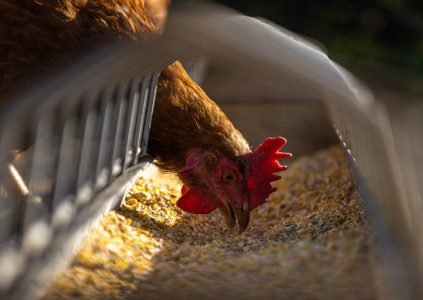Oils are commonly used as energy sources in laying hen diets, exerting multiple effects such as:
- Improving palatability
- Increasing feed consumption
- Strengthen immunity
- Reducing morbidity
When compared with broiler diets, the amount of oil that is added in laying hen diets is low. This is due to the fact that laying hens find themselves in a unique physiological state and are more likely to suffer from lipid metabolism disorders.
The lipids found in the egg yolk are mainly derived from dietary oils and therefore these play a crucial role in laying hens’ productive performance and egg quality.
The main types of oils used in laying hen diets are from plant and animal origin.
Vegetable oils commonly used in poultry feed are rich in unsaturated fatty acids (UFAs). These are important for the growth and development of laying hens. This is especially true for linolenic acid and linoleic acid, which are essential fatty acids (EFAs).
Linolenic acid deficiency hinders development and reduces production yield, while linoleic acid is deposited directly into the egg yolk and thus increases the weight of the egg through an increase in yolk weight(Kostik et al. , 2015).
Keep up to date with our newsletters
Receive the magazine for free in digital version
REGISTRATION
ACCESS
YOUR ACCOUNT
LOGIN
Lost your password?
Source: Zhouyang Gao y col., 2021
